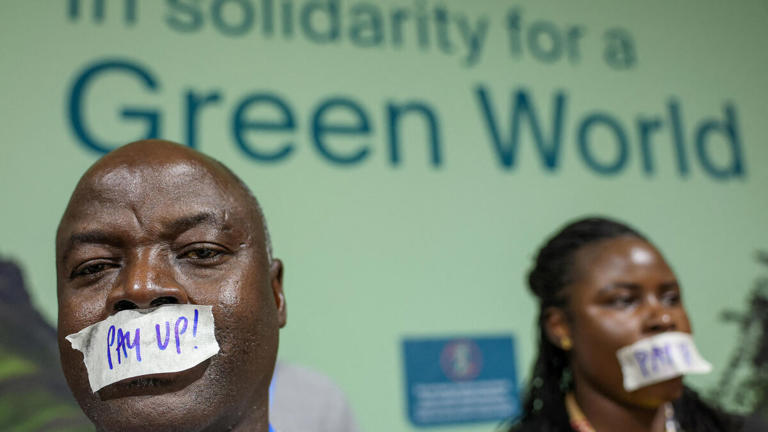The COP 29 site in Baku, Azerbaijan, suddenly turned into a pressure cooker. The summit, which brings together 197 countries, seemed sluggish until the early hours of Friday, November 22—the final day—when WhatsApp groups started buzzing with rumors about a new draft text. A proposal was expected by noon, local time.
Finally, by mid-day French time—several hours late—the draft was released. It brought bad news for NGOs and developing nations: the Azeri COP 29 presidency proposed setting climate finance at $250 billion annually by 2035.
This figure represents a significant increase—two and a half times the current $100 billion annual commitment for 2020-2025. However, climate activists and many developing countries had been calling for at least $1 trillion annually in contributions from developed nations to support climate finance.
“It’s a large sum, yes, but we’re only asking for 1% of global GDP. Is that too much to ask to save lives?” questioned Juan Carlos Monterrey Gomez, a negotiator for Panama.
“This Text Is Disrespectful!”
In the hours leading up to the release of the contentious figure, NGOs and development organizations were rallying with the slogan: “No deal is better than a bad deal.”
Once the proposal was unveiled, Gaia Febvre, head of international policy at Climate Action Network, was outraged: “This text is disrespectful! 2024 has been the hottest year on record, and climate disasters keep escalating. Climate change is killing people, and after three years of technical negotiations, Northern countries dare to propose this laughable number? We refuse to accept it!”
Soomin Han, a climate finance policy analyst, likened the proposal to a “word salad with no nutritional value or seasoning” and urged states to “send it back to the kitchen.”
Meanwhile, a senior U.S. official present in Baku, speaking anonymously, called the target an “extraordinary effort.” Reaching this figure, two and a half times higher than the previous goal, would “require even more ambition,” the official stated. The U.S. reportedly remains very reluctant to commit to a higher amount.
Source: MSN



